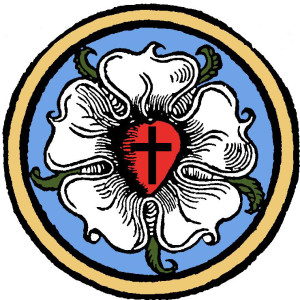
The Psalm for this Sunday is Psalm 113, a psalm of praise for the special covenant name, “Lord” (Yahweh), given to Moses to bring to the people of Israel as they were rescued from slavery in Egypt. This name is repeated three times in the opening verse, and five more times in the verses that follow. This psalm later became the first of a set of psalms (113-118) called the Hallel (Praise), which was sung as people went up to Jerusalem for the Passover celebration and then at the Passover itself. Jesus and His disciples probably sang this psalm at His “Last Supper” before His death. The Lord is “high above all nations,” yet He stoops down to help the “poor” and the “needy” and even the “barren,” like Hannah in the Old Testament. (See her song, in 1 Samuel 2:1-10.) The Lord lifts them all up and blesses them, as Jesus would when He came to this world to save us all, princes or poor and needy. Hallelujah! -which means,: “Praise the Lord!”
The Old Testament lesson is from Amos 8:4-7. The Lord speaks to His own people, who are trampling on and cheating and deceiving the poor and needy for personal gain. They were even willing to force the poor into slavery for as little gain as “a pair of sandals.” The Lord says that He will not forget their evil deeds, and judgment is coming upon them.
The Epistle lesson is from 1 Timothy 2:1-15. Paul is teaching a younger pastor, Timothy, about what is important for public worship. He stresses that prayers and thanksgiving be made for all people. (That is why we still have a “General Prayer” in worship, covering the joys and needs of many, including those in authority, that we have a “peaceful and quiet” society.) The word “all” is used five times in the first six verse. Everyone is important to the Lord. At the same time, Paul stresses an unpopular idea in our own day, but which we still follow - that only men are to be the leaders and teachers in public worship, as part of God’s order of creation and in a fallen world. Women are encouraged to be more concerned about inner spiritual beauty than outward appearance. The same is true for men, who are to serve “without anger or quarreling.”
Above all, the one true Triune God is to be at the center of worship and especially the work of Christ Jesus, who became man and “gave His life as a ransom for all” - men, women, and children. “God our Savior desires all people to be saved and to come to a knowledge of the truth.”
The Gospel lesson is from Luke 16:1-15. This is a difficult passage, as Jesus tells of a wasteful manager who is losing his job and uses the owner’s money to try to make friends of people who owe the owner money, by lowering their debts. The owner finds out and admires the “shrewdness” of the manager, thinking about the future, though he certainly cannot approve of what the manager has done. Jesus then goes on to say that our money and possessions can be used “unrighteously,” but they can also be used for good, in “serving God” and helping others find the “eternal dwellings” of heaven through faith in Jesus as Savior. Jesus then spoke to Pharisees, who had a reputation of loving money for personal gain and prestige, and warned them (and us) that He knows what is truly in the hearts of people - trust in the Lord or in ourselves and our desires.
More Episodes
 2024-11-06
2024-11-06
 2
2
 2024-11-06
2024-11-06
 2
2
 2024-11-06
2024-11-06
 2
2
 2024-11-01
2024-11-01
 7
7
 2024-10-22
2024-10-22
 6
6
 2024-10-22
2024-10-22
 3
3
 2024-10-15
2024-10-15
 5
5
 2024-10-15
2024-10-15
 4
4
 2024-10-03
2024-10-03
 6
6
 2024-09-28
2024-09-28
 6
6
 2024-09-28
2024-09-28
 3
3
 2024-09-28
2024-09-28
 5
5
 2024-09-18
2024-09-18
 11
11
 2024-09-13
2024-09-13
 4
4
 2024-09-06
2024-09-06
 4
4
 2024-08-31
2024-08-31
 5
5
 2024-08-31
2024-08-31
 1
1
 2024-08-23
2024-08-23
 11
11
 2024-08-15
2024-08-15
 11
11
Create your
podcast in
minutes
- Full-featured podcast site
- Unlimited storage and bandwidth
- Comprehensive podcast stats
- Distribute to Apple Podcasts, Spotify, and more
- Make money with your podcast
It is Free
- Privacy Policy
- Cookie Policy
- Terms of Use
- Consent Preferences
- Copyright © 2015-2024 Podbean.com






